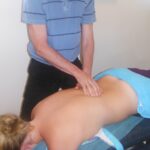
Rest and recovery are essential components of a successful weight loss journey. When it comes to shedding those extra pounds, many people focus solely on diet and exercise, overlooking the importance of rest and recovery. However, these two elements play a crucial role in achieving your weight loss goals.
Rest is not just about taking a break from physical activity; it is about giving your body the time it needs to repair and rebuild. During rest, your muscles recover from the stress and strain of exercise, allowing them to grow stronger and more resilient. This muscle growth is essential for weight loss as it increases your metabolism, helping you burn more calories even at rest.
Additionally, rest is vital for regulating hormones that are involved in weight management. Lack of sleep and chronic stress can disrupt these hormones, leading to weight gain and difficulty in losing weight. By prioritizing rest, you can improve the quality of your sleep, reduce stress levels, and create a more conducive environment for weight loss.
On the other hand, recovery focuses on preventing injuries and optimizing performance. Engaging in intense physical activity without proper recovery can lead to overuse injuries, fatigue, and burnout. Incorporating recovery strategies such as stretching, foam rolling, and massage can help alleviate muscle soreness, improve flexibility, and enhance blood circulation.
Moreover, incorporating rest days into your workout routine is crucial for preventing overtraining. Overtraining can hinder your weight loss progress and increase the risk of injuries. By giving your body time to recover and recharge, you can avoid burnout and maintain a consistent exercise routine.
In conclusion, rest and recovery are not just luxuries; they are essential for successful weight loss. By prioritizing rest, you allow your body to repair and rebuild, promoting muscle growth and regulating hormones. Incorporating recovery strategies helps prevent injuries and optimize performance. So, don’t underestimate the power of rest and recovery on your weight loss journey.
The Importance of Rest
Rest is crucial for weight loss as it allows the body to recover from physical exertion, reduces stress levels, and promotes muscle growth and repair. It also helps to regulate hormones and improve overall sleep quality.
When it comes to weight loss, many people focus solely on diet and exercise, overlooking the importance of rest. However, rest plays a vital role in achieving successful weight loss. It is during rest that the body has the opportunity to repair and rebuild itself, ensuring that you are in the best possible condition to continue your weight loss journey.
One of the key benefits of rest is its ability to allow the body to recover from physical exertion. When you engage in intense workouts or physical activities, your muscles undergo stress and micro-tears occur. Rest gives your muscles the chance to repair and rebuild, making them stronger and more resilient. This not only improves your overall physical performance but also promotes muscle growth, which is essential for weight loss as muscle burns more calories than fat.
In addition to physical recovery, rest also plays a crucial role in reducing stress levels. Stress can have a detrimental impact on weight loss efforts as it triggers the release of cortisol, a hormone that promotes fat storage, particularly in the abdominal area. By prioritizing rest, you can help regulate your cortisol levels and reduce stress, creating a more favorable environment for weight loss.
Furthermore, rest is closely linked to improved sleep quality. Quality sleep is essential for weight loss as it affects various hormones that regulate appetite and metabolism. When you don’t get enough restful sleep, the hormones that control hunger and fullness become imbalanced, leading to increased cravings and a slower metabolism. By incorporating sufficient rest into your routine, you can improve your sleep quality and support your weight loss goals.
In summary, rest is not just a luxury but a necessity when it comes to successful weight loss. It allows the body to recover from physical exertion, reduces stress levels, promotes muscle growth and repair, and improves overall sleep quality. So, make sure to prioritize rest alongside your diet and exercise routine to optimize your weight loss journey.
The Role of Recovery
The role of recovery is crucial for weight loss and overall fitness. Recovery strategies such as stretching, foam rolling, and massage are effective in alleviating muscle soreness, improving flexibility, and enhancing blood circulation. These techniques not only help your muscles recover faster but also contribute to a better range of motion and overall mobility.
Incorporating rest days into your workout routine is equally important. Rest days allow your body to recharge and repair itself, preventing burnout and reducing the risk of overtraining. Overtraining can lead to decreased performance, increased fatigue, and even injuries. By giving your body the time it needs to rest and recover, you are ensuring that you can continue your weight loss journey safely and effectively.
Effective Recovery Techniques
Effective Recovery Techniques
When it comes to rest and recovery, there are several effective techniques that can help you optimize your weight loss journey. One of the most important aspects of recovery is engaging in active recovery exercises. Activities like walking or swimming can help increase blood flow to your muscles, reduce muscle soreness, and promote faster recovery. These low-intensity exercises allow your body to recover without putting excessive strain on your muscles.
In addition to active recovery exercises, proper nutrition and hydration play a crucial role in supporting your body’s recovery process. Fueling your body with nutritious foods and staying hydrated can provide the essential nutrients and fluids needed for muscle repair and growth. Make sure to include a balance of protein, carbohydrates, and healthy fats in your diet to support optimal recovery.
Another recovery method that has gained popularity among athletes is the use of compression garments. Compression garments, such as compression socks or sleeves, apply gentle pressure to your muscles, which can help improve blood circulation and reduce muscle fatigue. These garments can be worn during or after workouts to aid in recovery and enhance performance.
In addition to compression garments, taking ice baths can also be an effective recovery technique. Immersing your body in cold water can help reduce inflammation and muscle soreness. The cold temperature constricts blood vessels, which can help flush out metabolic waste products and reduce swelling. If you find ice baths too intense, you can also try using ice packs or cold compresses on specific muscle areas.
Lastly, getting enough sleep is crucial for effective recovery. During sleep, your body repairs and rebuilds damaged tissues, including muscles. Aim for 7-9 hours of quality sleep each night to allow your body to fully recover. Creating a relaxing bedtime routine and ensuring a comfortable sleeping environment can help improve sleep quality.
In summary, effective recovery techniques include engaging in active recovery exercises, maintaining proper nutrition and hydration, using compression garments, taking ice baths, and prioritizing quality sleep. By incorporating these techniques into your routine, you can support your body’s recovery process, prevent injuries, and optimize your weight loss efforts.
Preventing Injuries
Prioritizing rest and recovery can help prevent injuries by allowing the body to repair and strengthen itself. When we engage in physical activities, our muscles and tissues experience stress and strain. Rest and recovery give our bodies the time they need to heal and rebuild, reducing the risk of injuries.
By listening to our body’s signals and avoiding the temptation to push through pain or fatigue, we can avoid overuse injuries. Overdoing it can lead to setbacks in our weight loss journey and even long-term damage. It’s important to find a balance between challenging ourselves and giving our bodies the rest they need.
One effective way to prevent injuries is to incorporate rest days into our workout routine. These days off allow our muscles to recover and reduce the risk of overtraining. It’s also crucial to engage in proper warm-up and cool-down exercises, as well as stretching, to prepare our bodies for physical activity and prevent strains and sprains.
Additionally, paying attention to our nutrition and hydration is key in injury prevention. Properly fueling our bodies with nutritious meals and staying hydrated helps support muscle recovery and repair. It’s like giving our bodies the necessary tools to rebuild and stay strong.
In summary, prioritizing rest and recovery is essential for preventing injuries during our weight loss journey. By listening to our bodies, incorporating rest days, and taking care of our nutrition and hydration, we can keep ourselves on track and avoid setbacks. Remember, it’s not just about the destination, but also about the journey, and taking care of our bodies along the way.
Frequently Asked Questions
- Why is rest important for weight loss?
Rest is essential for weight loss as it allows your body to recover from physical exertion. It reduces stress levels, promotes muscle growth and repair, regulates hormones, and improves sleep quality.
- What is the role of recovery in weight loss?
Recovery plays a crucial role in weight loss by helping to prevent injuries and optimize performance. Techniques such as stretching, foam rolling, and massage alleviate muscle soreness, improve flexibility, and enhance blood circulation.
- What are some effective recovery techniques?
Some effective recovery techniques include active recovery exercises like walking or swimming, proper nutrition and hydration, using compression garments, taking ice baths, and ensuring you get enough sleep.
- How can rest and recovery help prevent injuries?
Prioritizing rest and recovery allows your body to repair and strengthen itself, reducing the risk of injuries. It’s important to listen to your body’s signals and avoid pushing through pain or fatigue, as this can lead to overuse injuries and setbacks in your weight loss journey.







Leave a Reply